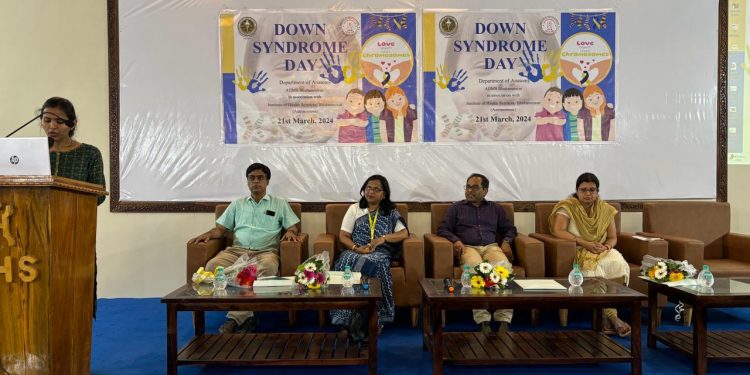Bhubaneswar: AIIMS, Bhubaneswar has been providing genetic counselling to parents of babies with Down syndrome and other such genetic disorders, said Manisha R Gaikwad, head of the department of anatomy at an outreach programme on Down Syndrome organised by the department of the City AIIMS in association with the Institute of Health Sciences (IHS), Chandaka, here Thursday.
Speaking at the event, AIIMS executive director Ashutosh Biswas emphasised organising such sensitising outreach programmes to put more light on Down syndrome and other genetic disorders. He appreciated the effort of the department for taking such an initiative. “AIIMS perinatal clinic comprises of experts from various specialities like obstetrics and gynaecology (O&G), paediatrics, neonatology, anatomy and psychiatry, who have been providing comprehensive genetic counselling to the parents,” said Gaikwad. She further added that the cytogenetic laboratory in the national institute also helps in detecting the common chromosomal anomalies in conditions like Down syndrome through karyotyping. “Down syndrome is the most common Trisomy with a prevalence of 1 in 830 births in India.
A baby with the syndrome will have a flat facial profile, upward slanting eyes, simian crease and sandal gap. The babies also suffer from repeated respiratory infections, congenital heart disease and intellectual disability,” she said.
As the incidence of Down syndrome increases with increased maternal age, awareness among the public, and medical professionals will help in the timely detection of the condition and will lead to appropriate action, stressed the experts. “While providing various therapies for common genetic disorders such as speech therapy, occupational therapy and physiotherapy, the approach should be single-centered and patient-centric,” said Satya Narayan Mohapatra, director of IHS. He added that handling patients with common genetic disorders is a continuous process including identification, prevention and lifelong management for which we should change the stereotype in society.
ARINDAM GANGULY, OP






































